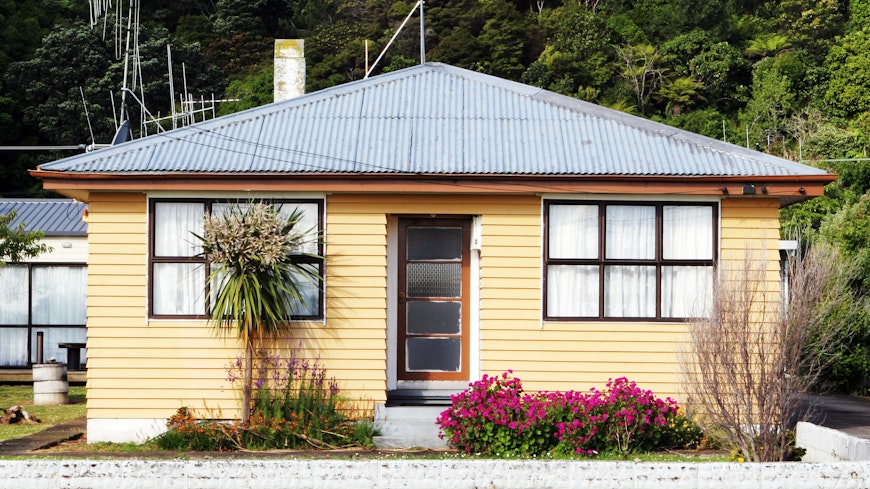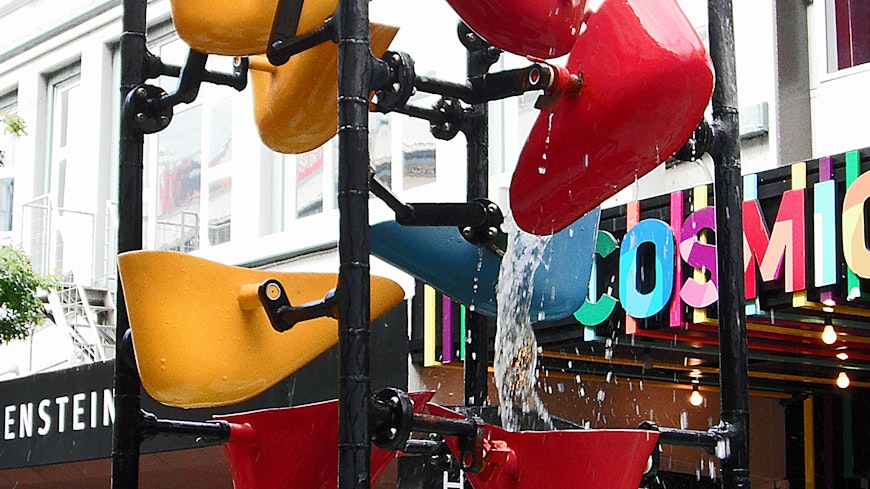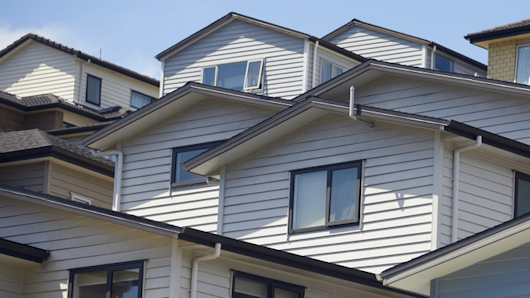When Paul* and his wife moved into their Auckland rental almost 15 years ago, the place was a mess. But this was their new home, so they tidied it up and soon people were passing by in summer to admire the garden.

They were good tenants. They respected their landlord and she respected them.
In 2021, the landlord’s husband went into care. Unable to manage the place on her own, she brought in a property manager. Immediately, Paul’s life changed.
Previously, inspections were rare. Now, the property manager showed up nearly every month. He barely looked at the place, but each visit disrupted home life.
Despite these visits, the property manager was slow to respond to maintenance issues. It took three months to get an overhanging hedge trimmed back. A leak in the bedroom ceiling remained unresolved two months after Paul raised it.
Soon after the property manager was hired, Paul received a call from the landlord. The property manager was pressuring her to raise the rent, she said. But Paul wasn’t to worry – she wasn’t going along with the idea, as she didn’t want Paul moving elsewhere.
However, a year later she gave in. Paul was informed that rent was increasing by $140 a week. After almost 15 years, Paul’s family is considering moving.
“The relationship we had since 2008, it just meant nothing,” Paul says. “The property manager – they just don't get it.”
More than 40% of tenancies are overseen by property managers.
As home ownership falls, property managers are increasingly present in the lives of New Zealanders. One in three households now rent.
More than 40% of those tenancies are overseen by property managers on behalf of landlords. New Zealand now has more property managers than it has bus drivers, cooks or architects, according to Census data. Over the past 20 years, the number of property managers has more than doubled.
To landlords, property managers provide a valuable service, taking care of the day-to-day management of a rental – choosing tenants, arranging repairs and maintenance, and ensuring the rent arrives.
But to renters, a property manager is often an unwanted intermediary, a henchman of sorts, tasked with the landlord’s dirty work – letting you know in a hundred small ways that the house you live in is not your own.
The power this booming industry holds over tenants is huge. In the past year alone, property managers lodged more than $162 million in bond. Yet it is almost entirely unregulated, making New Zealand an outlier among similar countries. Anyone can set up shop as a property manager and start letting properties and collecting rent. No training, skills or good character required.
That now looks set to change, as the Government hurries through reform to regulate the industry for the first time. The proposed changes will require property managers to be licensed and trained in the basics of the laws they need to follow.
This might seem uncontroversial. And in one sense it is – it’s almost impossible to find opponents to the reform, which is backed by renters and property groups alike.
But those same groups agree that, in a crucial respect, the proposed law falls short. It may leave some tenants better protected than others, based purely on who they happen to rent from. Property manager or landlord – should it matter?
An unregulated industry

Bucket Fountain on Cuba Street, Wellington
On a grey Thursday afternoon in July 2022, about 40 demonstrators gathered at the Bucket Fountain on Cuba Street, Wellington to protest one of New Zealand’s largest and most notorious property management firms.
“Your mouldy houses make us sick – eat shit, Quinovic,” the protesters chanted as they marched toward the head office of a firm that has become the bête noire for critics of the property management industry. Not without reason: Quinovic’s recent scandals include threatening to evict tenants during the first Covid-19 lockdown, deducting money from a dead man’s bond to replace the mattress that he died on, and seeking to evict a heavily pregnant woman because her baby would put the tenancy in breach of its maximum occupancy limit.
In 2018, the firm’s Te Aro franchise attracted controversy for running ads suggesting landlords were financing their tenants’ social lives by charging too little rent. Another advertisement read: “Your tenants may hate us. You will love us.” A year later, the same franchise was caught posting fake positive reviews about itself online.
But despite Quinovic’s “long-standing reputation”, it is “far from the only offender”, says Tenants’ Action Wellington, which organised the Wellington protests.
As part of this investigation, Consumer NZ has heard from numerous renters reporting excessive flat inspections, failures to undertake repairs, condescending behaviour and varying degrees of incompetence among property managers across the sector.
One renter, Kate, says she “never ever” wants to rent from a property manager again, after it took the threat of legal action to get a “half-ass” response to concerns about a rotting bathroom, trees overhanging the power lines, and excessive moisture.
Another renter, Della, said she paid for a professional cleaner at the end of her tenancy, only to be told she needed to pay for more cleaning by a different company – which the property manager happened to get a commission from. It took the threat of Tenancy Tribunal action to get him to release her bond.
The Tenancy Tribunal is filled with stories like these. In the last financial year, tenants lodged more than 2000 claims against landlords where a property manager was acting, data provided by the Ministry for Business, Innovation and Employment (MBIE) shows.
While no data is available on the outcomes of those claims, a review of decisions from a two-week period reveals instances of property managers failing to repair serious maintenance issues, entering properties without notice and failing to lodge tenants’ bond.
These aren’t the only ways property managers can make life hard for tenants. According to data from MBIE, property managers may be more likely than private landlords to take tenants to the Tenancy Tribunal, lodging more than twice as many claims as private landlords against tenants in the past year.
Consumer spoke to one renter, Isiah*, who was told by his property manager that his rent was going up by $50 a week. When he contacted his landlord directly after the property manager didn’t respond to his counter-offer of a $30 increase, he discovered the landlord knew nothing about the increase and did not support it.
There are problems for landlords, too. In 2018, media reported that an Auckland property manager had scammed landlords for nearly a decade, pocketing tenants’ bonds and skimming money from rent payments. By the time liquidators were called in, he allegedly owed more than $900,000 to 72 landlords.
David Pearse, the chairperson of the Residential Property Managers Association (RPMA), accepts the industry is a “mess” but says most specialist property managers are doing a good job. Many are overworked and burnt out, with some responsible for up to 300 properties. The Ministry of Housing and Urban Development (HUD) estimates that an individual property manager typically manages between 70 and 100 properties.

Your rights when renting
We outline your landlords responsibilities and obligations under the Residential Tenancies Act.
The plans for regulation
Currently anyone can set up shop as a property manager, without experience, qualifications or a code of conduct. Instead of industry-wide rules, there’s a hodgepodge of self-regulation by voluntary industry bodies – a situation flowing from the Government’s decision in 2008 to exclude property managers from the Real Estate Agents Act.
In 2018, amid growing concern about the industry, a coalition of community and industry groups launched a campaign calling for reform. That idea found its way into Labour’s 2020 election platform, and within a month of the election, officials were at work to implement the policy.
The proposed law would establish professional entry standards and licensing requirements for residential property managers, industry practice standards, and an independent disciplinary and complaints resolution process.
However, the coverage of the law is carefully circumscribed. Included are those who work as residential property managers. Private landlords are excluded.
This is contentious. Despite the growth of the property management industry, the majority of tenants still rent directly from landlords. In these cases, the landlord does all the things a property manager does.
This fact has raised concerns that the new law may be setting up a two-tier system.
A property manager problem or a landlord problem?
Geordie Rogers is no fan of property managers. As president of Renters United, he’s heard countless horror stories of property managers gone rogue. He fully supports regulating the industry but isn’t convinced there’s good reason to treat landlords differently.
Both groups “feed off the same power imbalance”, Rogers believes. Both think “they have power over the person that’s renting from them, just because of their circumstance”.

“A private landlord may not increase your rent as much, but because they have a good relationship with you, they might think they can invade your privacy by coming over to your flat unannounced,” he said. “A private property manager probably wouldn’t do that, because they are about minimising their legal risk.”
Indeed, in the last financial year, Tenancy Services found a higher rate of breaches by landlords than by property managers among investigations it conducted, according to data provided by MBIE. Perhaps for this reason, some renters we spoke to prefer renting from property managers.
For example, Anna found renting from a property manager to be the “best thing ever”. She sees him as “an impartial middleman who isn’t stingy about spending on maintenance”, while her landlords have been difficult to communicate with and reluctant to spend on the property.
Pearse, from the RPMA, believes many private landlords are “completely ignorant” of their legal obligations, and attempts to exclude them from regulation are a “slur against all property managers”.
“You’re never going to get the issue sorted out in the industry and know what’s going on until you actually have everyone licensed in one form or another,” he said.
REINZ also supports including landlords.
According to Rogers, the New Zealand Property Investors Federation was the only industry body involved in the consultation to oppose including private landlords.
So why aren’t private landlords included?
The official reason, according to HUD briefings obtained under the Official Information Act, is that landlords are already sorted.
“The activities of landlords are already adequately regulated through the RTA [Residential Tenancies Act] to ensure tenants have sufficient protection”, one briefing records. The new law is “intended to complement but not duplicate or supersede remedies available under the RTA”.
But other parts of government don’t seem so sure. In November 2021, Treasury officials advised of “issues of RTA compliance by private landlords” and suggested the Government “assess whether that system is adequate to secure desired tenant outcomes”.
“We understand the need to avoid duplication with existing legislation and the logic, for practical reasons, behind dealing with private landlords and property managers separately,” the Treasury briefing said. “Thought will need to be given to ensuring that the use of parallel systems does not create a two-tier system in terms of protections for tenants.”
Rogers speculates that the scope of the law really reflects the Government’s true priorities: to protect landlords, not tenants.
“This regulation was designed to hold property managers accountable to landlords … They don’t care about the relationship between landlords and tenants.”
Do property managers push up the rent?
Common wisdom has it that you’ll pay more if you rent from a property manager. But is this true?
Consumer NZ set out to answer that question by asking HUD to compare the value of bonds lodged by property managers with those lodged by private landlords.
This approach isn’t perfect. There’s no single source of truth for who owns what property and how much they rent it for. The best we have is data from bonds lodged with Tenancy Services.
However, bonds aren’t lodged for all tenancies and because they’re only lodged at the start of a tenancy, they don’t capture rent increases for existing tenancies.
Also, bond lodgement forms are not designed to definitively capture whether there’s a property manager involved.
Properties rented through a property manager are on average $7 more expensive per week.
Those provisos aside, the results are significant. Across the country, properties rented through a property manager are on average $7 more expensive per week than those rented by private landlords. If you rent from a property manager, odds are you’ll pay more for the privilege.
Part of the difference may be that property managers tend to rent higher-value properties, but that’s unlikely to account for the full difference, according to HUD. Across price ranges, properties rented through a property manager are consistently more expensive than those rented through a landlord.
While correlation doesn’t mean causation, this data signals that the property management industry may have an impact on rent prices. So what’s going on?
One explanation is that landlords effectively pass some of the cost of using a property manager onto tenants. In addition to various one-off fees and charges, property managers usually charge landlords a percentage of rent, typically between 6.5% and 10%. That fee structure may also incentivise property managers to push landlords to raise rents as much as they can.
Pearse, of the RPMA, accepts there might be such an incentive, but says rents are ultimately a function of supply and demand. A core part of the service property managers provide is ensuring landlords keep up with changes in market rent, and they do so by looking at the prices of other properties in the area.
But the market rent is shaped by the decisions landlords make as to when they will raise rent and by how much. Stories such as Isiah’s suggest property managers may raise rent in circumstances where landlords would not otherwise do so – and even without the landlord’s knowledge.
As the property management industry grows, and more rent decisions are informed by the advice of property managers, the market rent may rise faster than it otherwise would.
Geordie Rogers of Renters United says this shows a need for stronger rent controls. Right now, landlords can only increase the rent once a year and tenants can challenge increases in the Tenancy Tribunal.
But these controls are weak and have little impact in keeping rents to an affordable level, because in practice tenants will pay almost anything for a home, Rogers says.
“You'll continue to pay as much as you can to ensure you have a home, because that’s where everything else comes from.
“At the end of the day, there needs to be some indication as to what is considered an ethical amount to charge someone for a house. Rent controls are about ensuring … landlords aren’t abusing a housing crisis to make the most out of tenants.”
*Not their real name.

Subscribe to our newsletters
Get even more Consumer NZ news and invitations to share your voice on important issues straight to your inbox. You don’t have to be a member to have these newsletters emailed to you regularly.


